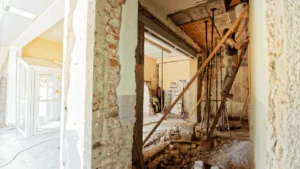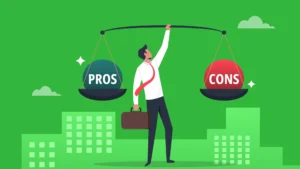Before you put your home on the market you’ll need to understand the full cost of selling a house in the UK in 2024. Chances are, it’ll be more than you think!
That’s because a lot of the various professionals you’ll need to work with charge their fee as a percentage of your home’s value – so as property prices go up you’ll may have to pay more in fees. Others are flat fees, but are essential requirements so you have no choice. Then there are the ones that are optional, but perhaps make all the difference.
We’re taking a look at what are those costs of selling a house in the UK and how to keep them under control.
What are the different costs for different ways to sell?
1. It’s essential to budget and plan
The more you know about what you are in for, the better prepared you’ll be – and you might even be able to save cash by making sure you plan more effectively.
The costs of selling a house in the UK typically includes:
- Estate agent fees – a percentage of the sale price.
- Energy Performance Certificate (EPC) – required by law
- Homebuyer report – highly recommended
- Stamp duty- the tax payable on the sale price.
- Removal costs – moving your stuff out
- Storage – sometimes essential if you are between homes
- Mortgage fees – bank charges if you need to pay off a mortgage early
- Legal fees – for conveyancing etc.
This is before you start doing what you need to do to get the sale price you want – staging rooms in your home, cleaning and doing any repairs and decorating to show your property in the best possible light.
2. Things to do before you begin
Homes are made to live in – but there is a big difference between a lived-in space and a show home! What feels comfortable and practical for your busy life is not going to sell your house to a buyer. They expect a clear, clean, uncluttered space where they can imagine their own lives – not be distracted by the impact of yours. They also could be put off by even minor repairs or decorative issues.
Before you can get your house on the market – there are a few things you can do to get it match fit. Most don’t cost a lot, but some will need your attention sooner rather than later.
This might include decluttering, maximising the space, staging with key furnishing, even upgrading kitchens and bathrooms, improving energy efficiency (a hot topic in the cost of living crisis!) – even making sure your home has ‘curb appeal’ makes all the difference. Remember – first impressions count! You can see a bit more about how to add value to your home.
3. Check you have all the documents you need
There’s stacks of vital documents you’ll need – from forms and certificates, to technical information, searches and planning or building regulations. Some just take time but some can cost money too. There’s a useful breakdown here. Make sure you have what you need.
4. Different ways to sell your home
There are a few different ways to sell your home – and some cost more than others.
Estate Agent
If you go with an estate agent you’ll get professional guidance and marketing expertise, with a wider reach and the potential for achieving a higher selling price. But this is arguably the most expensive option and fees are typically a percentage of the sale price.
Private Sales
You can sell privately. There are no agent fees, but you’ll have to do most of the work and make all the decisions. There’ll be marketing, viewings, and negotiation to arrange and the whole process may take longer.
Cash Buyer
The cash house buyer, such as Zapperty, guarantees a quick sale often at a slightly lower price than market value, but without the need for many of the costly aspects of traditional sales.
| Cash Buyer | Estate Agent | Private Buyer | |
| Speed | Typically very fast | Can take longer, depending on market conditions | Totally reliant on your contacts and efforts |
| Price | Generally slightly lower than market value | Potential for higher sale price – depending on market and negotiations | May well be lower than market price |
| Fees | No agent fees | Agent fees, usually a percentage of the sale price | No fees |
| Work Involved for you | Minimal | More work, including viewings, negotiations, and marketing | A lot of work – you’ll have to take the role of the agents! |
| Certainty | Guaranteed sale | No guarantee of sale, depends on market and offers | Very uncertain – perhaps impossible or at least difficult. |
| Flexibility | Often can sell “as-is” | Needs to accommodate repairs or renovations | Very flexible, but without any of the checks and balances. |
5. The costs of solicitors, conveyancers and searches
The fees for a conveyancing solicitor can vary depending on several factors. Simple sales may have lower fees compared to more complex ones that involve mortgages, shared ownerships, or leaseholds.
Conveyancing fees when selling a house are split into two parts. The legal fees that the conveyancer or solicitor charges for doing the work, and the disbursements or third party charges for certain services.
You’ll pay different fees, depending on where you are, the solicitor’s experience and any additional services – like helping you obtain a mortgage or dealing with probate.
You should always get quotes from a few solicitors to compare fees and services before you make a decision. There can also be costs associated with local association property searches.
6. Marketing and Advertising
If you are selling privately you’ll need to pay your own online listing costs, as well as stumping up for professional photography or virtual 3D tours – which has been shown to make a tangible difference to the number of interested buyers and achieving the asking price you want.
7. Offers and Negotiations
Most agents help with the negotiations – acting as the go-between, offering advice based on extensive experience. Negotiating is far more difficult if you are handling the sale yourself. With private sales you are on your own. Understanding the negotiation process and handling multiple offers can get complicated and you could mistakenly settle for less.
8. Taxes and Fees
There are often issues around Capital Gains Tax – it can get complicated and is entirely individual so you should always get professional advice. Understand the tax implications of selling your home can be more complex if you are also required to fill an ID1 or ID2 form during the process. There are also things like Stamp Duty Land Tax (if applicable) – so
9. Issues and Complaints
Of course it’s always plain sailing when everything goes according to plan and everyone does what they are supposed to do, when they are supposed to do it. However, you might find yourself with the cost – and inconvenience – of managing disputes and complaints with buyers or even agents.
If you find yourself needing to seek legal advice or mediation, this can add significant costs – and the potential costs of litigation can be very high.
In conclusion
However you choose to sell your home, you should make sure you plan carefully. If you want to reduce the total cost of selling a house this year, remember to shop around and compare not just quotes, but all the associated costs – and look at alternatives like cash sales.







